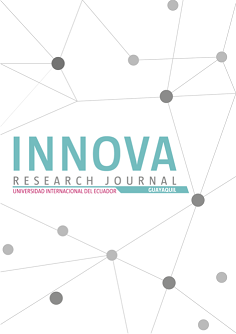La acción tutorial: Análisis de la dinámica intelectual desde la praxis universitaria
Contenido principal del artículo
Resumen
Los estudios de post grado se han venido incrementando en los últimos años, tanto en cantidad ofertada como en la cantidad de participantes inscritos en los mismos, sin embargo el número de egresados no se corresponde con el número de inscritos, muchos culminan su carga académica más no cumplen con la presentación del Trabajo de titulación requisito para la obtención de la titularidad, por lo que la producción intelectual sigue sin responder las expectativas que el mercado y la sociedad requieren. Hasta ahora las diferentes investigaciones al respecto tratan de enfocar el problema hacia áreas muy específicas, sin embargo los procesos de pensamiento o la dinámica intelectual que entra en juego no parecieran haber despertado inquietudes para su investigación, de allí que la presente investigación pretendió identificar aquellos procesos que están implícitos durante el desarrollo de la praxis tutorial, para ello, la misma se enmarcó dentro de un enfoque mixto, donde lo cuantitativo se enmarcó en una investigación de tipo descriptivo, con diseño no experimental, la población estuvo conformada por 18 docentes con función de tutor, la información se obtuvo a través de una encuesta tipo Lickert, el enfoque cualitativo permitió a las investigadoras un acercamiento directo con su objeto de estudio que es la Dinámica Intelectual, la información se obtuvo por medio de entrevistas a informantes clave. El uso de diferentes estrategias: resúmenes, subrayado, cuestionamientos, entre otros quedaron evidenciados como estrategia de uso regular entre los mismos. De igual manera, la Praxis tutorial requiere de diferentes modos de pensamiento para el abordaje científico en el desarrollo escritural y lingüístico. Los resultados evidencia la importancia que tiene el manejo afectivo emocional en el compromiso que tanto el tutor como el tutoriado deben establecer, ya que esto es lo que permite que fluya la dinámica intelectual y se obtenga el desarrollo exitoso de la gestión tutorial
Palabras claves: Dinámica Intelectual, Praxis Tutorial, Inteligencia Emocional, Postgrado,
Descargas
Detalles del artículo
Derechos de autor: Los autores que publican en la revista INNOVA Research Journal conservan los derechos de autor y garantizan a la revista el derecho de ser la primera publicación del trabajo bajo una Licencia Creative Commons, Atribución-No Comercial 4.0 International (CC BY-NC 4.0). Se pueden copiar, usar, difundir, transmitir y exponer públicamente, siempre que: a) se cite la autoría y la fuente original de su publicación (revista, editorial, URL y DOI de la obra); b) no se usen para fines comerciales; c) se mencione la existencia y especificaciones de esta licencia de uso.
Citas
Arias, F. (1999). El Proyecto de Investigación. Una Guía para su Elaboración. (2a. Ed.). Caracas: Episteme.
Balestrini, M. (1997). Como Elaborar un Proyecto de Investigación. Caracas: Consultores asociados.
Calvo, F. (2001). Estadística Aplicada. Barcelona: Deudos.
Canales, E (S/F). El Perfil del Tutor Académico. (Documento en línea). Recuperado de http://papyt.xa,vam.mx/media/bhem/dues/pdf/116pdf.
Fernández, S. y Cols (1997) Cultura, Inteligencia emocional percibida y ajuste emocional. Un estudio preliminar. Revista electrónica de motivación y emoción. 4, 8-9. Recuperado de http://reme.uji.es/articulos/afernp9912112101/texto.html.
Gutiérrez, L. (S/F). Paradigmas Cuantitativo y Cualitativa en la Investigación Socio educativa. Proyecciones y reflexiones. Revista Paradigma. Recuperado de http://www.revistaparadigma.org.ve/Doc./Paradigma96/doc/htm.
Hernández, R., Fernández, C. y Baptista, P. (2008). Metodología de la Investigación. (4a. Ed.).Ciudad de México: McGraw-Hill.
Hurtado, D. (2008) La Configuración: Un recurso para comprender los entramados de las significaciones imaginarias. (Documento en línea). Recuperado dehttp://www.unizales.edu.co/revistacinde/index.htlm.
Martínez, M. (2014). Comportamiento Humano. (2ª. Ed.) México: Trillas.
Mateo M. (2001). Metacognición y Educación. Buenos Aires: Aique. Morles, V. (2004). La educación de postgrado en Venezuela. Panorama y perspectiva. IESALC –UNESCO. Caracas: Monte de Ávila.
Neisser, U. (1981). Procesos Cognitivos y Realidad. Madrid: Marova.
Poggioli, L (S/F). Aprender a enseñar y aprender a aprender. (Documento en línea). Recuperado de http://www.fpolar.org.ve/poggioli/poggprof/.htm.
Palella y Martins (2008). Metodología de la Investigación Cuantitativa. Venezuela: Fondoupel.
Ruiz, C. (2002). Instrumentos de Investigación Educativa. Venezuela: Cideg.
Ruiz, J. (1998). Dirección de los procesos educativos. .Universidad de Pinar del Río. (Documento en línea). Recuperado de http://www.monografias.com/trabajos40/liderazgo-delprofesor/liderazgo-delprofesor2.shtml.
Tamayo y Tamayo (2007). El Proceso de la Investigación Científica. (6a ed). México, DF. Limusa.
Valarino, E. (2012). Tesis a Tiempo. Barcelona, España: Grupo E,Capitulo 4: El Director es muy Importante. Pp. 129-132.






